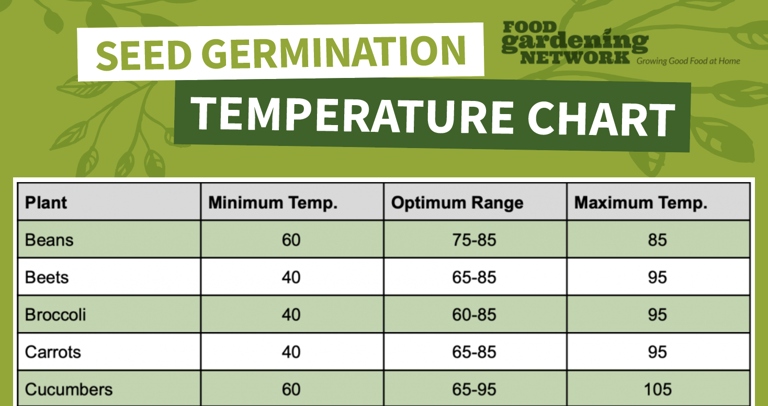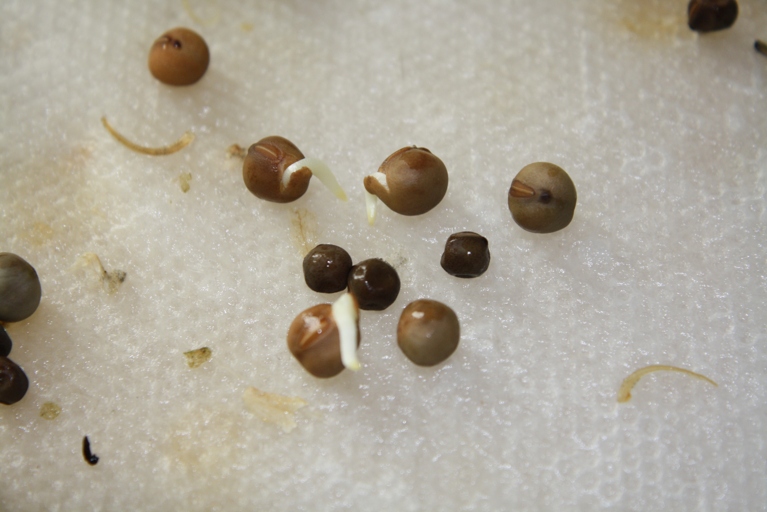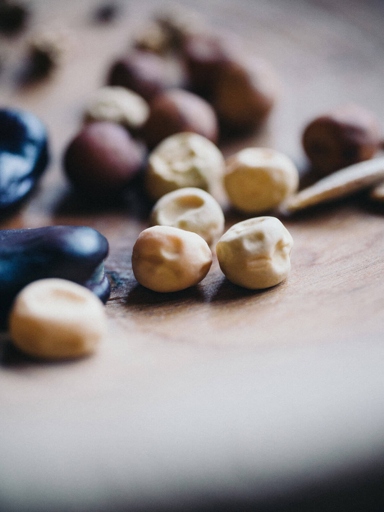If you’re looking to start a vegetable garden, you may be wondering how long it will take for your seeds to sprout. The answer depends on the type of vegetable. This chart shows the average number of days it takes for various vegetables to sprout.
Table of germination of vegetable crop seeds
The germination time for vegetable crop seeds can vary. The germination time is the number of days it takes for a seed to sprout. The table below shows the germination time for some common vegetable crop seeds. It is important to know the germination time for your vegetable crop seeds. This will help you determine when to plant your seeds.
Other seeds, such as tomatoes, can take up to two weeks to sprout. The time it takes for a seed to sprout depends on the type of seed. As you can see, the germination time for vegetable crop seeds can vary. Some seeds, such as lettuce, take only a few days to sprout.

Knowing the germination time for your vegetable crop seeds is important. It is also important to note that the germination time can vary depending on the type of seed. It will help you determine when to plant your seeds.
Shelf Life of Vegetable Seeds
However, some seeds, such as those of tomatoes and peppers, can remain viable for two to three years under the same conditions. The shelf life of vegetable seeds depends on a number of factors, including the type of seed, the storage conditions, and the level of humidity in the air. Most vegetable seeds will remain viable for at least one year if stored in a cool, dry place.

If the seeds germinate, they are still good to use. The best way to prolong the shelf life of vegetable seeds is to store them in an airtight container in a cool, dry place. You can do this by soaking a small number of seeds in water for 24 hours and then planting them in moist soil. If you are storing seeds for longer than one year, it is a good idea to check on them periodically to make sure they are still viable.
How To Improve Seed Germination
Too much water can drown them, while too little will cause them to dry out and die. Finally, give your seeds the right amount of water. Second, sow your seeds in well-drained, loose soil. If the soil is too compacted, the seeds may have trouble pushing through. If you want to improve your seed germination rates, there are a few things you can do. Old seeds may not germinate at all, or may take much longer to do so. With a little care, you can get your seeds off to a great start. First, make sure you’re using fresh seeds.
How to Accelerate Germination
This will help them to absorb water and start the germination process. Finally, plant your seeds in a warm, sunny spot. Old seeds may not germinate at all. If you’re eager to get your vegetable garden started, there are a few things you can do to speed up the germination process. Second, soak your seeds in water for 24 hours before planting. The warmer the temperature, the faster the seeds will germinate. First, make sure you’re using fresh seeds that haven’t been stored for more than a year.

With a little patience and some careful planning, you can have your vegetable garden up and running in no time!
Frequently Asked Questions
1. How long does it take for vegetable seeds to sprout?
2. How long do different types of vegetable seeds take to sprout?
3. At what temperature do vegetable seeds sprout the fastest?
4. Does the amount of light affect how long it takes for vegetable seeds to sprout?
5. How often should you water seeds?
6. What is the best way to store seeds?
7. How can you tell if seeds are still good?
8. Why did my seeds not sprout?
9. Can I sprout seeds from the grocery store?
10. What are the benefits of sprouting seeds?
1. How long does it take for vegetable seeds to sprout?
On average, it takes 7-14 days for most vegetable seeds to sprout. However, some seeds may take longer, and some may sprout sooner.
2. How long do different types of vegetable seeds take to sprout?
The time it takes for a seed to sprout can vary depending on the type of seed. For example, beans and peas usually sprout within 7-10 days, while carrots and beets may take up to 14 days.
3. At what temperature do vegetable seeds sprout the fastest?
Most vegetable seeds will sprout the fastest at a temperature of 70-85 degrees Fahrenheit.
4. Does the amount of light affect how long it takes for vegetable seeds to sprout?
Yes, the amount of light can affect how long it takes for vegetable seeds to sprout. Seeds that are kept in a dark place may take longer to sprout than seeds that are kept in a lighted place.
5. How often should you water seeds?
You should water seeds daily, or as often as needed to keep the soil moist but not wet.
6. What is the best way to store seeds?
The best way to store seeds is in a cool, dry place. You can also store them in the refrigerator or freezer.
7. How can you tell if seeds are still good?
You can test the viability of seeds by soaking them in water overnight. Seeds that float are not viable and should be discarded.
8. Why did my seeds not sprout?
There are several reasons why seeds may not sprout. The seeds may be old, the wrong type of seed for the conditions, the temperature may be too high or low, the soil may be too dry or wet, or the seeds may not have been given enough light.
9. Can I sprout seeds from the grocery store?
Yes, you can sprout seeds from the grocery store. However, it is best to sprout organic seeds that have not been treated with chemicals.
10. What are the benefits of sprouting seeds?
Sprouting seeds increases the nutrient content and makes them easier to digest. Sprouted seeds are also a good source of vitamins, minerals, and antioxidants.
Final thoughts
It is clear that the time it takes for vegetable seeds to sprout can vary greatly depending on the type of seed. However, in general, it seems that most seeds will sprout within a week if they are kept in a warm, moist environment. So, if you’re patient and have a green thumb, you should have no problem growing your own vegetables from seed.
